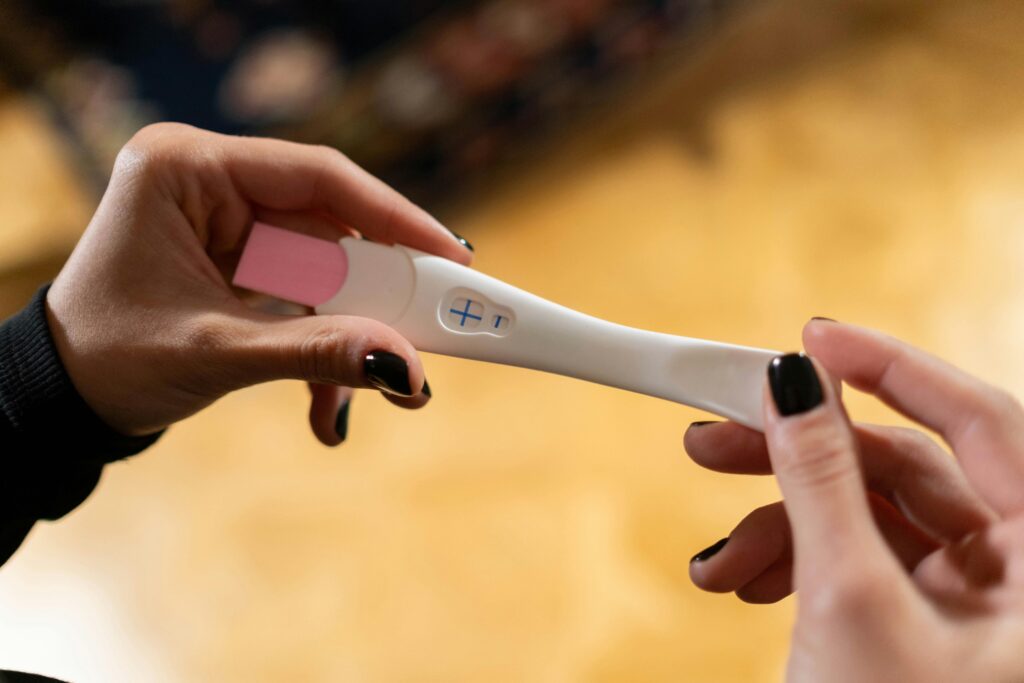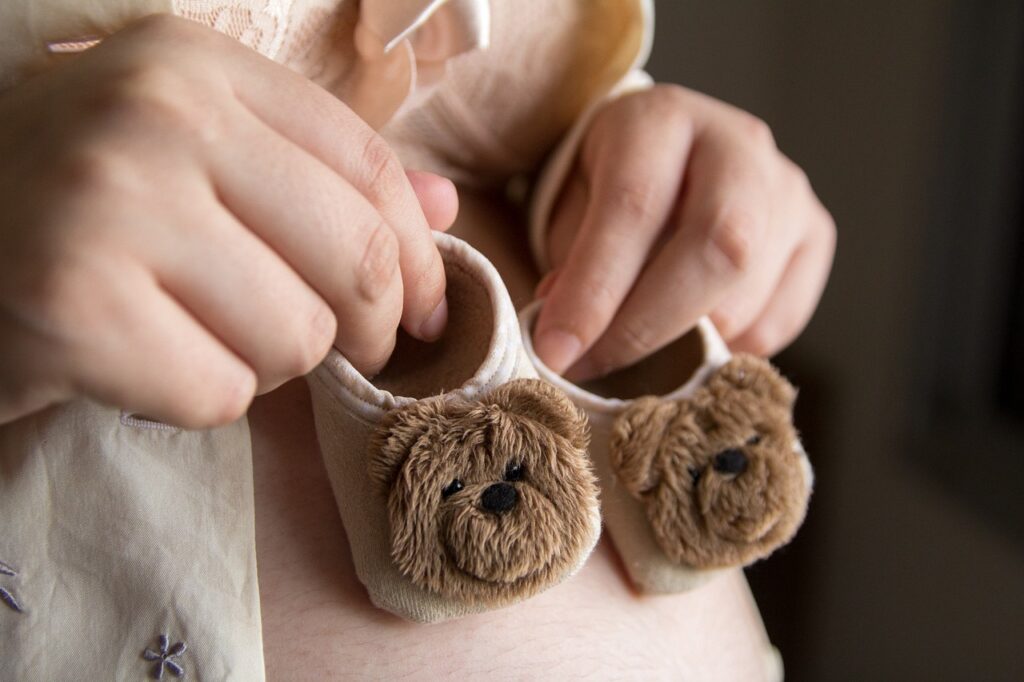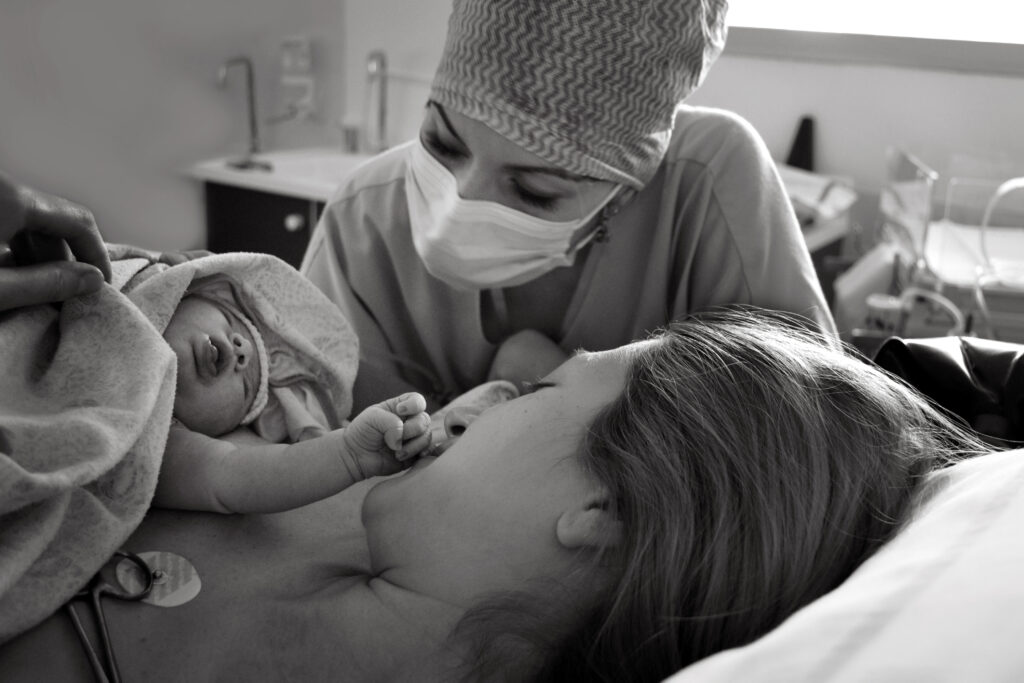
Finding out you’re pregnant can be a moment of great emotion, but it can also come with many questions. Pregnancy symptoms vary from woman to woman, and some can be confused with signs of other conditions. In this article, we’ll explore the main pregnancy symptoms, how to identify them, and when to take a pregnancy test. If you’re wondering, “How do I know if I’m pregnant?” keep reading to discover everything you need to know.
1. The First Signs of Pregnancy
The first pregnancy symptoms can appear even before a missed period. Here are the most common ones:
1.1 Missed Period
A missed period is one of the most classic signs of pregnancy. However, it doesn’t always mean you’re pregnant, as your menstrual cycle can vary due to stress, hormonal changes, or other factors. If your cycle is usually regular and you’ve missed a period, it’s a good idea to take a pregnancy test.
1.2 Nausea and Vomiting
Known as “morning sickness,” nausea is one of the most common symptoms in early pregnancy. It can occur at any time of the day and is caused by rising levels of hCG (the pregnancy hormone). For some women, this symptom can be mild, while for others, it can be severe and require medical attention.
1.3 Breast Tenderness
Your breasts may become more sensitive and swollen due to hormonal changes. This symptom is similar to what many women experience before their period, but it can be more intense during pregnancy. You might also notice that your nipples darken and become more prominent.
1.4 Fatigue
Feeling unusually tired is another early sign of pregnancy. This happens because your body is working hard to support the developing embryo, and your progesterone levels are rising. You might find yourself needing more naps or feeling exhausted even after a full night’s sleep.
1.5 Frequent Urination
If you find yourself running to the bathroom more often, it could be a sign of pregnancy. This happens because your kidneys are processing more fluids, and your growing uterus puts pressure on your bladder. This symptom can start as early as the first few weeks of pregnancy.
2. Less Common but Possible Symptoms
While the symptoms above are the most common, some women experience other early signs of pregnancy, such as:
2.1 Mood Swings
Hormonal changes can cause emotional ups and downs, making you feel unusually emotional or irritable. These mood swings are similar to what you might experience before your period but can be more intense during pregnancy.
2.2 Food Cravings or Aversions
You might suddenly crave certain foods or feel repulsed by others. This is due to hormonal shifts and changes in your sense of taste and smell. For example, you might develop a strong dislike for coffee or crave pickles and ice cream.
2.3 Bloating and Constipation
Progesterone slows down your digestive system, which can lead to bloating and constipation. Drinking plenty of water and eating fiber-rich foods can help alleviate these symptoms.
2.4 Light Spotting
Some women experience light spotting, known as implantation bleeding, when the fertilized egg attaches to the uterine lining. This usually happens around the time of your expected period and is often mistaken for a light period.
3. When to Take a Pregnancy Test
If you’re experiencing some of these symptoms and suspect you might be pregnant, it’s time to take a pregnancy test. Here’s what you need to know:
3.1 Types of Pregnancy Tests
Urine Tests: These are the most common and can be done at home. They detect hCG in your urine.
Blood Tests: These are done at a doctor’s office and can detect pregnancy earlier than urine tests.
3.2 When to Test
For the most accurate results, wait until after your missed period to take a test. Testing too early can result in a false negative. If you have irregular periods, wait at least 21 days after unprotected sex to test.
3.3 How to Use a Pregnancy Test
Follow the instructions on the package carefully. Most tests involve holding a stick in your urine stream or dipping it into a cup of urine. Make sure to check the results within the recommended time frame.
4. What to Do If the Test Is Positive
If your pregnancy test is positive, congratulations! Here are the next steps:
4.1 Schedule a Doctor’s Appointment
Your doctor will confirm the pregnancy and guide you through the next steps, including prenatal care. They may also perform an ultrasound to check the baby’s development.
4.2 Start Taking Prenatal Vitamins
Prenatal vitamins, especially those containing folic acid, are essential for your baby’s development. Folic acid helps prevent neural tube defects, which can occur in the early stages of pregnancy.
4.3 Make Lifestyle Adjustments
Avoid alcohol, smoking, and certain foods that can harm your baby. Focus on eating a balanced diet and staying active. Gentle exercises like walking or prenatal yoga can help you stay healthy during pregnancy.
5. When to See a Doctor
While most pregnancy symptoms are normal, some signs require immediate medical attention. Contact your doctor if you experience:
Severe abdominal pain
Heavy bleeding
Dizziness or fainting
Severe nausea and vomiting
6. Frequently Asked Questions (FAQs)
6.1 Can I Have Pregnancy Symptoms Before a Missed Period?
Yes, some women experience symptoms like fatigue, nausea, and breast tenderness even before a missed period. However, these symptoms can also be caused by other factors, so it’s best to take a pregnancy test for confirmation.
6.2 How Soon Can I Take a Pregnancy Test?
Most home pregnancy tests can detect hCG levels about 10-14 days after conception. For the most accurate results, wait until after your missed period to test.
6.3 What Should I Do If My Test Is Negative but I Still Feel Pregnant?
If your test is negative but you still suspect you’re pregnant, wait a few days and test again. If your symptoms persist, consult your doctor for further evaluation.
6.4 Can Stress Cause Pregnancy-Like Symptoms?
Yes, stress can cause symptoms like fatigue, nausea, and missed periods, which can be confused with pregnancy. If you’re unsure, take a pregnancy test to rule out the possibility.
7. Tips for Managing Early Pregnancy Symptoms
Here are some practical tips to help you cope with early pregnancy symptoms:
7.1 For Nausea
Eat small, frequent meals throughout the day.
Avoid spicy or greasy foods.
Try ginger tea or ginger candies to soothe your stomach.
7.2 For Fatigue
Take short naps during the day.
Go to bed earlier than usual.
Stay hydrated and eat energy-boosting snacks like nuts and fruits.
7.3 For Breast Tenderness
Wear a supportive bra.
Apply a warm or cold compress to relieve discomfort.
7.4 For Mood Swings
Practice relaxation techniques like deep breathing or meditation.
Talk to a friend or therapist about your feelings.
8. Myths About Early Pregnancy Symptoms
There are many myths surrounding pregnancy symptoms. Let’s debunk a few:
8.1 Myth: You Can’t Get Pregnant While Breastfeeding
Fact: While breastfeeding can reduce fertility, it’s not a reliable form of contraception. You can still get pregnant while breastfeeding.
8.2 Myth: Morning Sickness Only Happens in the Morning
Fact: Morning sickness can occur at any time of the day. Some women experience it more in the evening.
8.3 Myth: You Can’t Exercise During Pregnancy
Fact: Gentle exercises like walking, swimming, and prenatal yoga are safe and beneficial during pregnancy. Always consult your doctor before starting a new exercise routine.
Conclusion
Knowing the early signs of pregnancy can help you take the necessary steps to ensure a healthy pregnancy. If you suspect you’re pregnant, take a test and consult your doctor for confirmation and guidance. Remember, every woman’s experience is unique, so don’t worry if your symptoms differ from others’.



